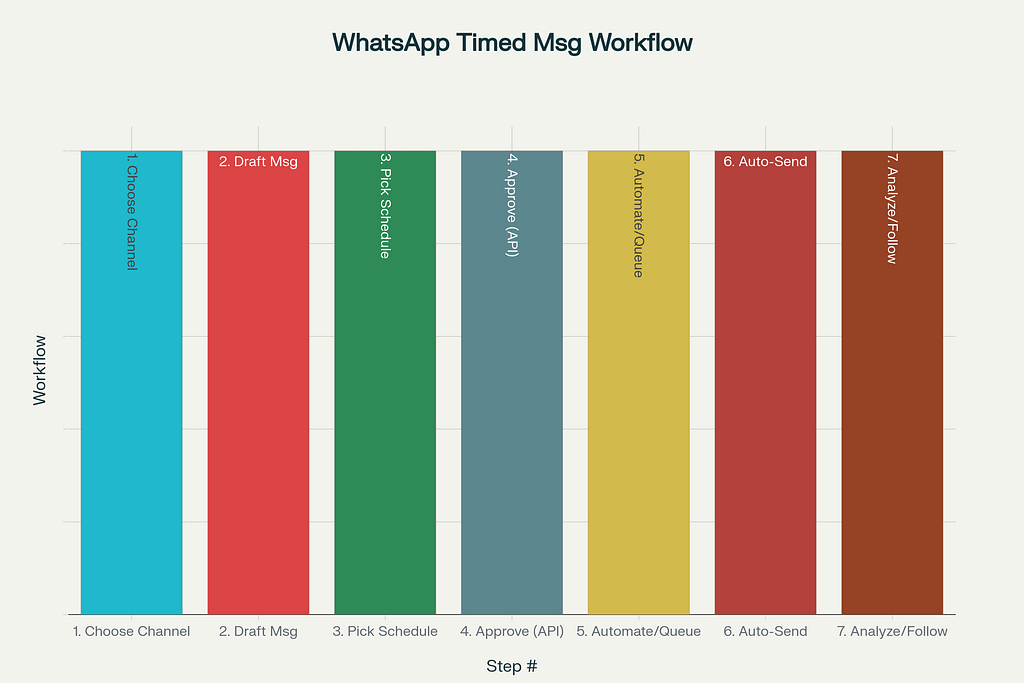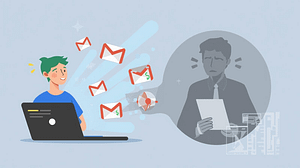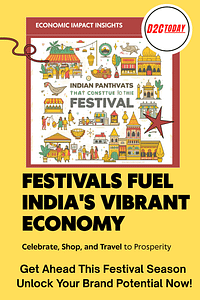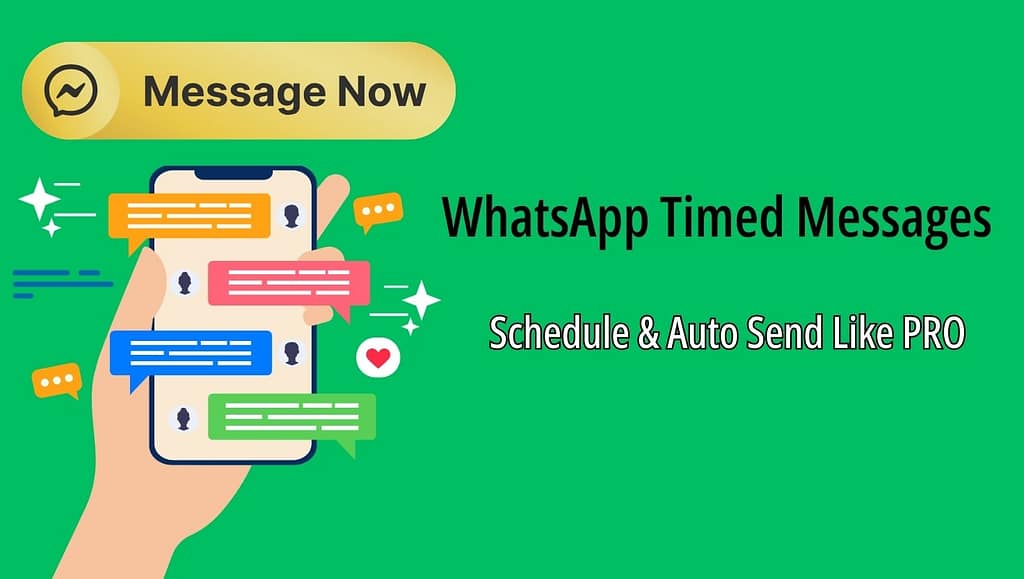WhatsApp Timed Messages are transforming D2C WhatsApp Marketing by enabling brands to connect with customers at the perfect moment driving open rates above 90% and powering automated campaigns that outshine manual outreach.
Whether you’re scheduling birthday offers, payment reminders, or abandoned cart nudges, the right scheduling tools and automation tactics can elevate your WhatsApp strategy to enterprise standards.
What Are WhatsApp Timed Messages? Why D2C Brands Need Them
WhatsApp Timed Messages are pre-composed texts, images, or template-based alerts that are automatically delivered to customers at a set time, date, and even according to customer time zones.
This powerful feature is at the heart of modern WhatsApp Message Scheduling. It unlocks personalization, scales up engagement, and ensures key communications go out when they have the highest impact no matter your team’s bandwidth.
For D2C brands, the stakes are even higher: scheduling messages lets you send order updates, re-engagement campaigns, or loyalty rewards exactly when your audience is most likely to act—helping you maximize ROI and build trust.
WhatsApp Automation for D2C Brands: Unlock Sales and Engagement in 2025
Why Time Matters in D2C WhatsApp Marketing
Customers open WhatsApp messages with more urgency than emails—open rates of 90-98% and 45-60% conversion rates are becoming the norm for scheduled campaigns. But timing is everything. A birthday discount sent at midnight may get buried, while a friendly morning reminder prompts instant conversion.
Well-timed automation means your WhatsApp messages are opened, read, and acted upon during your customers’ most receptive moments. This is invaluable for:
- Welcome campaigns sent seconds after signup
- Event reminders that arrive one hour before a webinar
- Re-activation nudges for dormant shoppers
- Automated payment or delivery alerts precisely when needed
WhatsApp Timed Message Scheduling Methods Compared
| Method | Ideal For | Automation Level | Features | Limitations |
| WhatsApp App (“Away/Greeting” message) | Solo use, micro-business | Basic | Set fixed “away” replies during off-hours | No one-off or campaign scheduling; not for broadcasts |
| SKEDit App / 3rd Party (Android) | Small teams, one-offs | Mid | Schedule via app UI, recurring messages | Device must stay unlocked; privacy concerns; limited analytics |
| Blueticks (Desktop Extension) | Desktop users, light daily use | Mid | Chrome extension, batch message planning | Manual setup; less robust than API |
| WhatsApp Business API Automation | D2C brands, scale-ups | Advanced | Mass scheduling, templated campaigns, integrated analytics | Requires API access, template approvals |
How to Schedule WhatsApp Messages: Step-by-Step Pro Workflow

Workflow: How to schedule WhatsApp Timed Messages using app, desktop tools, or API automation
- For everyday users: Use the built-in WhatsApp “Away”/“Greeting” message or Android scheduling apps like SKEDit.
- D2C brands: Use official API platforms (via Twilio, Zoko, MessageBird, Interakt, Gallabox, etc.) for campaign automation and reporting.
- API users: Design templates for all types of business engagement (promotions, reminders, notifications); submit for WhatsApp approval (often under 24 hours, fast-tracked in 2025).
- Tip: Include personalization (name, order details) and clear CTAs for maximum conversion.
3. Set Schedule: Time, Date, and Audience Segmentation
- Select recipients by tags, segments, or individual contact list.
- Choose optimal send time and configure for the customer’s local time zone.
- Batch or recurring scheduling available via most API & CRM integrations.
4. Queue and Automate
- For WhatsApp Business API, your tool will queue messages to send at the desired times, handling scale and timing precision even for thousands of recipients.
- Use CRM triggers or custom automations to link messages to purchases, sign-ups, or other key actions.
5. Auto-Send and Analytics
- Once the scheduled time hits, the message goes out automatically.
- Analytics dashboards show delivery, reads, clicks, replies—enabling campaign optimization and rapid follow-up.
Pro Tip: Combine scheduled WhatsApp Timed Messages with automated chatbot flows for richer, two-way customer experiences.
WhatsApp Marketing Strategies for D2C Brands: Unlock Growth with D2Ctoday
Key Use Cases for WhatsApp Message Scheduling
- Event Reminders: Alerts sent days, hours, or minutes before an important webinar, sale, or in-person event.
- Birthday/Anniversary Offers: Automated personalized deals increase retention and brand affinity.
- Cart/Browse Abandonment: Time-triggered discounts or reminders nudge customers to buy before leaving.
- Order Updates: Automated post-sale communication sent at key delivery or payment milestones.
- Weekly Tips/Content Drops: Scheduled, recurring value-add messages to nurture relationship and build authority.
Best Practices for WhatsApp Timed Messages (2025)
- Audit Optimal Send Times: Use analytics to identify peak hours for open/read conversions.
- Segment with Precision: Group users by behavior, lifecycle stage, and preferences for max relevance.
- Personalize Content: Mention names, relevant products, and unique incentives to drive engagement.
- Automate Opt-Out/Preference Management: Ensure compliance and keep customer trust high.
- Track, Iterate, and Scale: Regularly review dashboards, tweak your approach, and scale what works.
How does WhatsApp Timed Messages improve business communication efficiency
WhatsApp Timed Messages substantially improve business communication efficiency by enabling brands to send the right message to the right customer at exactly the right time—automatically, without the need for manual intervention. Here’s how they make a difference:
Automation Saves Time: Scheduling allows messages like confirmations, reminders, promotions, or follow-ups to be sent automatically, reducing the need for repetitive manual outreach and freeing up staff for higher-value tasks.
Improved Response Rates: Timed messages are delivered when customers are most likely to see and act on them, leading to open rates of 90-98% and response/conversion rates far above those of email or SMS.
Reduced Human Error: Pre-approved, templated communications ensure messages go out on schedule, avoiding forgotten updates or accidental delays that can occur with manual sending.
Scalability for D2C Brands: For D2C businesses, WhatsApp Timed Messages—when powered by business automation platforms—enable large-scale, segmented messaging campaigns without sacrificing personalization or compliance.
Consistency and Professionalism: Automated scheduling ensures all customers receive timely notifications (e.g., appointment reminders, birthday wishes), reinforcing a brand’s reliability and customer-centricity.
WhatsApp vs Other Channels: Why Automated WhatsApp Beats Email & SMS
| Channel | Avg. Open Rate | Avg. Response Time | Scheduling Support | Key Limitation |
|---|---|---|---|---|
| WhatsApp (API) | 90-98% | ~60 seconds | Yes (advanced) | Template approval needed |
| 20-22% | 60 min+ | Yes (basic, not real-time) | Often missed or filtered | |
| SMS | 42-54% | 10-20 min | Yes (basic, expensive) | Costs, no rich media |
Current Trends in WhatsApp Automation & Scheduling (2024-2025)
AI-powered smart scheduling: Auto-adjusts send times for each recipient’s interaction pattern.
APIs now integrate natively with CRMs and eCom platforms for “set-and-forget” workflows.
Brand storytelling via timed campaigns: Brands use WhatsApp Message Scheduling to drip-feed product narratives and customer journeys over weeks.
Voice/video scheduling: Early pilots show brands testing scheduled multimedia outreach for richer D2C WhatsApp campaigns.
Schedule WhatsApp Messages Without an API
You can schedule WhatsApp messages without using an API through three main methods:
The built-in “Away” and “Greeting” messages in the WhatsApp Business app (which automate replies for incoming chats during set hours),
Third-party Android apps like SKEDit (which let you create messages that send later, but require special permissions and your phone to stay unlocked), and
Desktop extensions such as Blueticks (for planning and queuing messages from your computer).
However, these approaches are basic they do not support advanced targeting, analytics, or full campaign automation.
Your device often must be online and active at sending time, and these tools aren’t safe or effective for scheduling bulk or marketing messages in a business context.
For reliable and professional WhatsApp message scheduling, especially for D2C marketing, it’s best to use the official WhatsApp Business API or a CRM platform that integrates with it.
FAQs
1. Can I schedule WhatsApp messages directly in the app?
No, WhatsApp doesn’t (yet) offer native “send later” features. You need the “Greeting/Away” message (only responds to inbound chats), a 3rd-party app (Android/SKEDit, Chrome scheduler for desktop), or an API-based CRM tool.
2. Is WhatsApp Message Scheduling safe for large D2C campaigns?
Yes if you use the official WhatsApp Business API with approved templates and through certified solution providers. Avoid sketchy 3rd-party tools for mass campaigns, as they risk account suspension and don’t scale well.
3. How does time zone scheduling work?
With API and modern CRM/automation integrations, you set the user’s location/time zone per recipient; the system then sends the scheduled message at the correct local time automatically.
4. Do all scheduled messages need WhatsApp approval?
Only outbound, business-initiated templates via WhatsApp API require prior approval. “Away” and “Greeting” auto-replies do not. Regular 1-to-1 chats or 3rd-party single-message tools do not require approval—but also aren’t compliant for business marketing.
5. Can I schedule multimedia (video, PDFs, catalog links) in timed messages?
Yes! Most API solutions and some app-based schedulers let you auto-send images, PDF files, and catalogs—just ensure your template (if API) supports the right media format and is approved in advance.
Level-Up D2C Engagement with WhatsApp Timed Messages
WhatsApp Timed Messages, powered by next-gen scheduling and automation, are the new backbone of D2C WhatsApp Marketing. Brands that adopt advanced API automation see higher engagement, efficiency, and revenue—delivering campaigns at the optimal moment, every time. Take your outreach further with CRM integrations, customization, and analytics, and you’ll meet and convert customers exactly where and when they want.
Ready to automate your brand’s WhatsApp presence?
- Explore WhatsApp API providers with robust scheduling
- Audit and segment your contact list today
- Experiment with timed campaigns—track open rates, iterate, and scale








1 thought on “How to Schedule WhatsApp Timed Messages & Auto-Send Like a Pro”
Such an informative article, thanks for sharing.